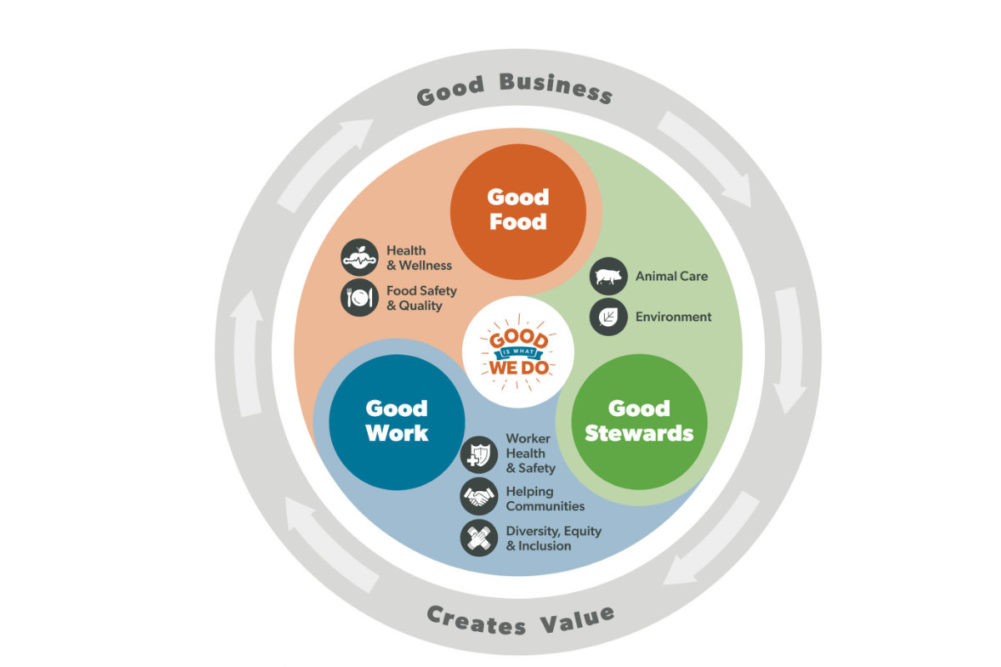SMITHFIELD, VA. – Smithfield Foods Inc. recently published its 2021 Sustainability Impact Report, which the company said was the 20th version.
“Since the genesis of our sustainability program in 2001, our unwavering commitment to continuous improvement has spurred extensive research and investments across our value chain that have led us to pioneer efforts addressing some of the greatest challenges and opportunities facing our industry,” said Shane Smith, president and chief executive officer of Smithfield Foods. “In addition to outlining the continual progress we are forging across our sustainability pillars, the report highlights many of the important lessons we’ve learned and innovations we have implemented to date.”
In the report, Smithfield highlighted various areas focused on sustainability commitments in the upcoming years.
For animal care, the company plans to maintain systematic programs, audits and certifications to ensure animal welfare, including transparent use of antibiotics. It added that it wanted to focus on industry-leading group housing for sows and established an external Animal Well-Being Committee with the Center for Food Integrity to complement the company's internal animal care committees.
Under environmental actions, Smithfield maintained its pledge to reduce its greenhouse gas emissions (GHG) in the US supply chain by 30% by 2030. The company committed to halving food loss and waste in all company-owned operations by 2030.
For renewable energy, Smithfield Foods touted the manure-to-energy technology installed on nearly all of the company’s Northern Missouri hog finishing farms. Construction of the project officially began in 2014 and ended up costing approximately $150 million.
The meat producer then laid out its Diversity, Equity & Inclusion initiatives, including a commitment to promote and hire Black, Hispanic and other underrepresented groups to reflect at least 30% and above of supervisors and female leaders to represent at least 35% and above of supervisors.
Smithfield also launched a new contract grower program to support Black and other minority farmers with entering or reentering the agriculture industry. This included three minority-owned farms in its supply chain.
“For Smithfield, sustainability has been a top priority for more than two decades – and our progress has not been achieved overnight,” said Stewart Leeth, chief sustainability officer for Smithfield Foods. “We started with long-term, big aspirational goals – our first was to be an environmental leader – then developed clear strategies to achieve them.”
With worker health and safety, Smithfield said it hosted more than 200 COVID-19 vaccine education and vaccination events around the United States. The company added that it will continue toward ISO 45001 Health and Safety Certification at all facilities globally by 2025.
The complete Smithfield Sustainability Impact Report can be found here.

